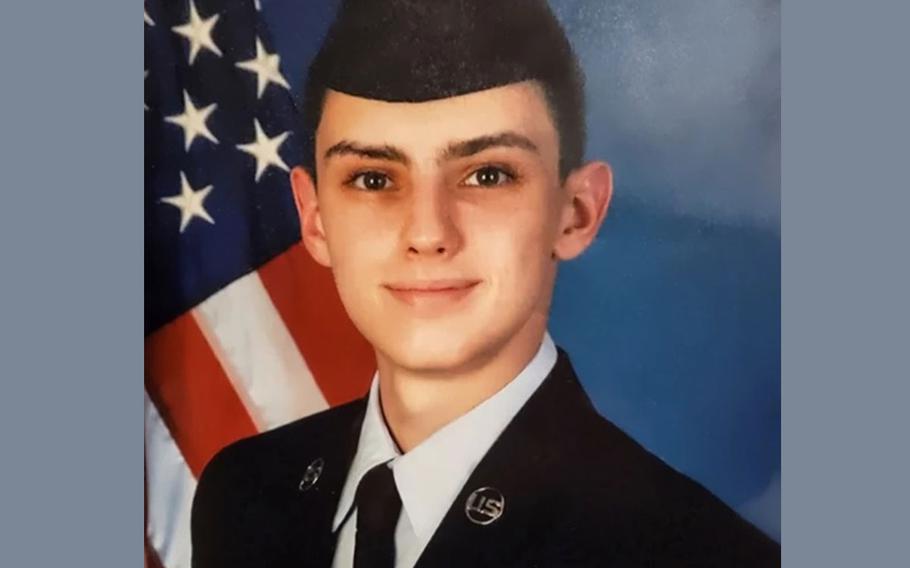
The Pentagon is seen on Oct. 21, 2021. (Robert H. Reid/Stars and Stripes)
The Defense Department does not intend to scale back the number of its military and civilian employees with classified information access, but it plans to better track who is accessing what secrets, a Pentagon official said Wednesday.
A 45-day review of policies and procedures ordered in April by Defense Secretary Lloyd Austin found most department officials with clearance are trustworthy, but policies meant to protect national secrets were interpreted differently across the vast, worldwide military organization.
Austin ordered the review in the wake of hundreds of classified documents being leaked to a private group of social media users. Airman 1st Class Jack Teixeira, a 21-year-old with the Massachusetts Air National Guard, is accused of leaking the military documents in a chatroom on Discord.
“The department relies on a culture of trust and accountability for those who are granted access to” classified national security information, Austin wrote in a June 30 memorandum announcing the review’s findings. “This review found that the overwhelming majority of [Defense Department] personnel with access to [classified national security information] are trustworthy, and that all DOD components demonstrate a broad commitment to security.”
But the review also found security measures were lax in some organizations for access to specialized facilities where classified information is handled and electronic databases where sensitive data is stored, said a senior defense official. The official spoke on condition of anonymity Wednesday to brief reporters on the review’s findings.
A number of changes that Austin ordered in response to the review are designed to make standard the use of existing technological tools to monitor access to Sensitive Compartmented Information Facilities, or SCIFs, and track electronic devices entering and exiting those facilities. The review also recommended all parts of the Defense Department implement systems that track what classified information cleared individuals are accessing via computer systems and install high-level security officials with specialties in classified information.
Those changes should help raise red flags to commanders and managers who see their personnel accessing information that they have no need to see.
“The recommendation is focused on ensuring that we have the right need to know processes and procedures … to ensure that the information that is available on classified networks is accessed only by those with a need to know,” the senior defense official said. “So, some of that is focused on how do we validate what documents are accessed online? What types of things do you have to have in your digital [credentials] to access certain products?”

Jack Teixeira, the airman accused in the leak of classified military documents online, was part of a unit in Massachusetts that collects and analyzes sensitive intelligence gathered from all over the world, according to court documents. (Wikimedia Commons)
Prosecutors in the case against Teixeira allege he used his high-level clearance and his access to a trove of secrets via his work in information technology to steal documents, including about the Russian war in Ukraine, and post photos of them on the Discord social media platform. Court documents allege he was caught wrongly accessing classified information and admonished for his actions, but prosecutors charged he continued to access information without a need to know after that incident.
Teixeira, who has remained jailed since his April arrest, has pleaded not guilty to the charges.
The senior defense official said Wednesday that the 45-day review was only loosely related to Teixeira’s actions, and that other ongoing Air Force and Justice Department probes could lead to other recommendations about classified information protection.
The official said the Pentagon was not looking to slow the growing number of workers — service members and civilians — with security clearances.
Doing so, the official argued, risked inhibiting the kind of information that is gathered or shared across the department and with allies.
“The department is mindful of the need to balance information security with requirement to get the right information to the right people at the right time to enhance our national security,” a Pentagon fact sheet on the review reads. “As DOD implements the recommendations and associated actions from this review, careful consideration will be given to guard against any ‘overcorrection’ which may impede progress on information sharing and operating models that better enable DOD to execute the National Defense Strategy and its overall mission.”